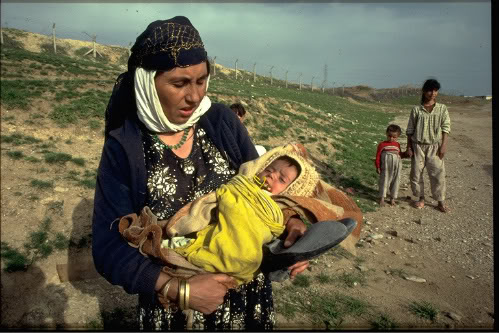“Reproductive health addresses the reproductive processes, functions and system at all stages of life. Reproductive health, therefore, implies that people are able to have a responsible, satisfying and safe sex life and that they have the capability to reproduce and the freedom to decide if, when and how often to do so.” – WHO
According to WHO, essentially all (99%) of the half a million maternal deaths every year occur in developing countries, including Kurdistan and girls are far more likely than boys to suffer sexual violence (any sexual abuse: 8.7% boys; 25.3% girls globally). The greatest contribution of reduction of devastation in Reproductive health is health promotion. Health literacy has become a keyword in the global discussion on health promotion and participation. The WHO (1998), defines health literacy as a cognitive and social skill which determines the motivation and ability of individuals to gain access to understand and use information in ways which promote and maintain good health. Cultural competence in health care has emerged to contribute to racial/ethnic disparities in health care. Cultural competence in health care describes the ability of system’s needs. Understanding and being culturally competent is important, because unfortunately health care is not equal for everyone (Malin and Gissler 2009).
Ten years since the fall of Saddam and the liberation of South Kurdistan, the Kurdistan Regional government, has come a long way in developing the region which is now internationally recognized as ‘Iraq’s safe haven’. The Kurdish people in 1991 were granted autonomy of North Iraq and have virtually self-governed their region since. In 2007 there were only 106 hotels in the region today more than 400 hotels are scattered across the different provinces. In 2013, Kurdistan expects to bring in $1 billion in tourism revenues and hopes to quintuple that number in just two years. Hewler, the regions capital, 2030 development plan calls for a wildlife safari park, a Grand Prix race track and a 36-hole golf course. In addition to all of this tourism and investment experts believe the region is in its infancy as far as world tourism goes.
Kurdistan is a traditionally agricultural region that is rapidly becoming industrialized due to the major exploitation of its oil fields and it currently has one of the fastest growing economies in the world, yet major aspects of living such as health care and education are significantly lacking, especially women’s health & women’s rights has been very poorly neglected.
In the draft of the Regional Development Strategy 2013-2017 of the Kurdistan Regional Government there are positive indicators of reproductive health in that there has been a large increase of birth rates in the region, especially those conducted under the supervision of health specialists. Data from 2006 shows that 58.5% of total baby deliveries were carried out by doctors, 11% by nurses and 18.3% by authorized midwives. However, a remaining 12.2% of baby deliveries were carried out by non-specialist personnel.
Reproductive health problems remain the leading cause of ill health and death for women of childbearing age worldwide. Impoverished women, especially those living in developing countries, suffer disproportionately from unintended pregnancies, maternal death and disability, sexually transmitted infections including HIV, gender-based violence and other problems related to their reproductive system and sexual behaviour.
Although regular reports on regional statistics in South Kurdistan are almost non-existent, there are reports which claim that the number of people infected with HIV have increased from 2 to 107 in the past few years. There are also reports which claim that infectious diseases have increased by 5000 percent. Whether these figures are accurate is a question that we cannot answer until a bureau of statistics is established in South Kurdistan where data is collected and analysed in a scientific manner. Until then we can only go by the government’s press releases and on ground accounts of the situation in the region. The figures and suggestions on the situation surrounding the spread of HIV infection are quite alarming.
The number of live births from 2003 to 2011 were recorded and showed large improvements across all districts including, Hewler, Duhok and Slemani. Live births overall increased from 98,540 in 2003 to 134,207 in 2006 at a growth rate of 34.2%, not including the growing population also impending Kurdistan, reflecting a slow but steady rise of the level of health awareness among the region. The largest increases of live births were recorded in Slemani with live births improving from 31,702 in 2003 to 57,779 in 2011.
Despite the improvements in live births Kurdistan’s health system still has a very long way to go in improving its standard of care to women and the reproductive health of the population. Sex education is taught in most western countries and used as a tool to empower people, especially teenage girls and women, with the knowledge of the dangers associated with sex and how to prevent them. Although the system of sex education in the west has its flaws, it allows for discussion of such sensitive topics and helps to raise awareness of certain diseases, like STDs. In most of the Middle East not just in Kurdistan Sex education is a very taboo subject, in most instances an almost forbidden topic of discussion between married couples, parents and their children, and even with health professionals trained in the area. Providing or speaking about sex education, is a vital step towards raising awareness amongst society about health practices and can empower women to make informed choices when it comes to family planning.
“Governments have long pledged to reduce maternal deaths and improve reproductive health care. Yet many aren’t taking even basic steps, like enabling patients to lodge grievances, addressing complaints, establishing health standards, and tracking births and deaths.” – Janet Walsh, deputy women’s rights director

